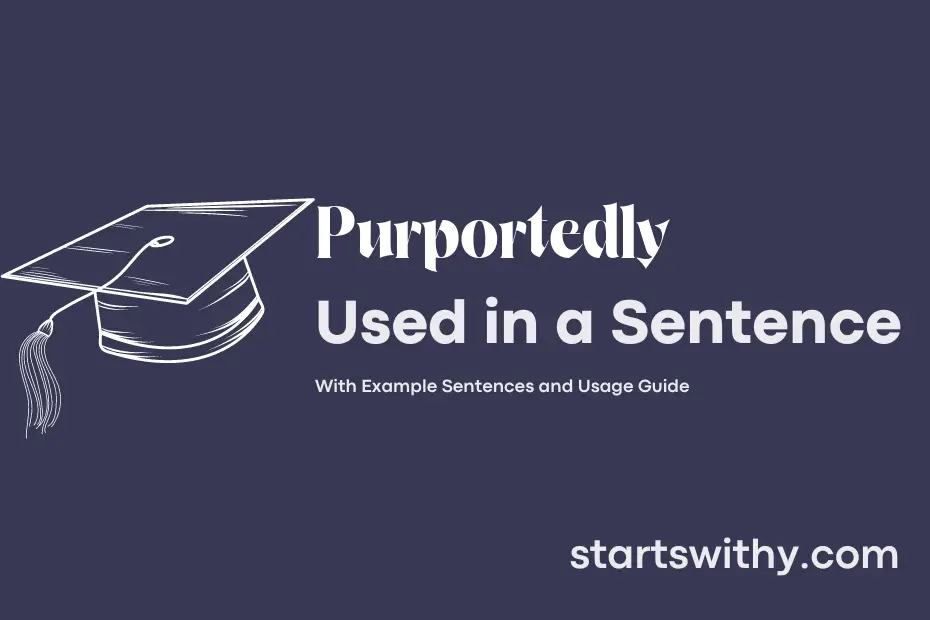Have you ever come across the term “purportedly” in your reading and wondered what it means? In essence, “purportedly” is an adverb that is used to indicate that something is claimed to be true, but its accuracy or authenticity is in question.
When “purportedly” is used in a sentence, it signifies that the information presented may not be entirely reliable and should be approached with skepticism. This word is commonly employed in situations where there is doubt or uncertainty surrounding the truthfulness of a statement or claim.
7 Examples Of Purportedly Used In a Sentence For Kids
- The purportedly magic pencil can draw anything.
- The purportedly haunted house is very scary.
- The purportedly talking parrot can say funny things.
- The purportedly lucky charm brings good fortune.
- The purportedly invisible cloak makes you disappear.
- The purportedly treasure map leads to a hidden chest.
- The purportedly flying carpet can take you anywhere.
14 Sentences with Purportedly Examples
- Purportedly, the college festival will feature performances by popular artists.
- The new professor is purportedly an expert in his field.
- The upcoming project deadline is purportedly next week.
- The college cafeteria’s food quality has purportedly improved significantly.
- Purportedly, the final exam will be an open-book test.
- The university library has purportedly expanded its collection of research journals.
- The student council elections are purportedly scheduled for next month.
- The guest lecturer purportedly has extensive industry experience.
- The campus sports facilities are purportedly undergoing renovations.
- The college canteen’s menu has purportedly been revamped to include healthier options.
- The internship opportunity purportedly offers a stipend to selected candidates.
- The college is purportedly planning to introduce new courses in the next academic year.
- The student housing facilities are purportedly being upgraded with better amenities.
- The college career fair is purportedly going to have participation from top companies in the industry.
How To Use Purportedly in Sentences?
Purportedly means something that is claimed to be true, but the claim may not have been proven or verified. Using this word in a sentence can add a layer of skepticism or doubt about the information being presented.
Here’s a simple guide for beginners on how to use purportedly in a sentence:
-
Identify a situation where there is a claim or assertion that you want to express doubt about.
-
Insert purportedly into your sentence in a position that makes sense grammatically. For example: “The treasure map, purportedly drawn by a famous pirate, led the treasure hunters to a deserted island.”
-
Make sure the context of your sentence is clear so that readers understand that the claim being made may not be entirely trustworthy. For example: “The article purportedly written by a renowned scientist has raised concerns among other experts in the field.”
-
Remember that using purportedly can imply that there is a discrepancy between what is claimed and what is actually true. It’s a way to signal to your readers that they should approach the information with caution.
-
Practice using purportedly in different sentences to become more comfortable with incorporating it into your writing. Over time, you’ll develop a better understanding of how to convey skepticism or doubt effectively.
Conclusion
In conclusion, sentences with the keyword “purportedly” suggest that the information being presented is claimed or believed to be true, but may not be definitively proven. The use of “purportedly” indicates a level of skepticism or uncertainty about the accuracy or validity of the statement being made. It is important for readers to critically evaluate such sentences and consider the context in which they are used to assess the credibility of the information being presented. By recognizing the implications of using “purportedly” in sentences, individuals can make more informed decisions and conclusions based on the available information.



